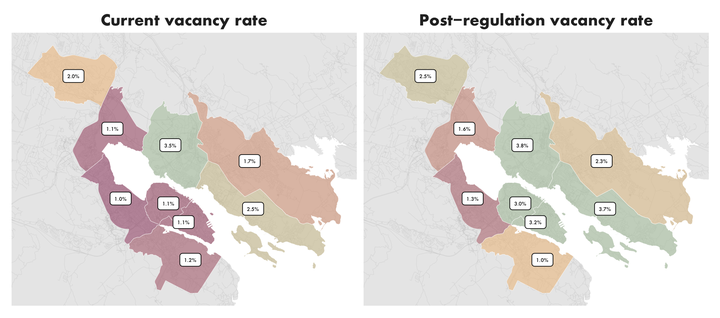
Abstract
In March 2019, the government of Nova Scotia announced plans to modernize its laws governing tourist accommodations in order to regulate short-term rentals (STRs). STRs are currently unregulated in the province, but the incoming changes (due to take effect in 2020) would require commercial STR hosts to register with the Province and pay equivalent taxes to traditional hotels, while “home-sharers” renting their primary residence would remain unregulated. This report describes the current state of Halifax’s STR market using big-data spatial analysis, and develops two future scenarios to explore the implications of the proposed laws for further regulation of STRs at the municipal level.
Type
Key findings
- On August 31, 2019, there were 2,420 short-term rentals active in the Halifax Regional Municipality (HRM)—a 19.2% year-over-year increase.
- The 1,980 STR hosts in the city earned $30.9 million in revenue in the last twelve months.
- Halifax has the most STR listings of any city in Atlantic Canada (the provinces of Nova Scotia, New Brunswick, Prince Edward Island, and Newfoundland and Labrador), and generates by far the most STR revenue.
- STR listings in the HRM are heavily concentrated in urban areas, with additional heavy concentrations along the coast.
- Urban and suburban parts of the HRM contain 77% of all active listings and generated about 78% of all revenue last year. Downtown Halifax had the most active listings and generated the most revenue of any neighbourhood in the municipality.
- Suburban areas such as Bedford had the highest year-over-year growth in active listings in the HRM, at 140%.
- Halifax’s STR market is dominated by entire-home listings, which make up almost three quarters (74%) of all active listings and earn 90% of all host revenue.
- Family-suitable homes with two or more bedrooms make up 61% of entire-home listings in the HRM.
- STR revenue in Halifax is distributed highly unequally: more than two fifths of all revenue last year was earned by just one in twenty hosts, and the top ten percent of hosts earned 55% of all revenue.
- More than two fifths (41%) of active listings were commercial multilistings (listings controlled by a host with two or more entire-home listings or three or more private-room listings), and these listings earned 50% of total host revenue last year.
The report is available to download here .